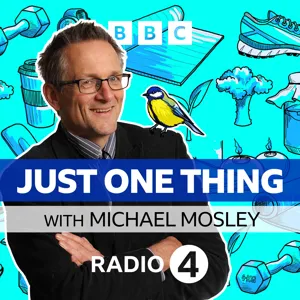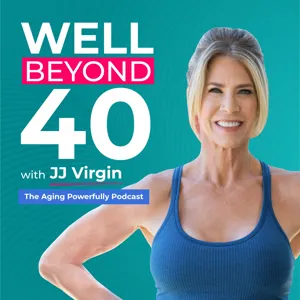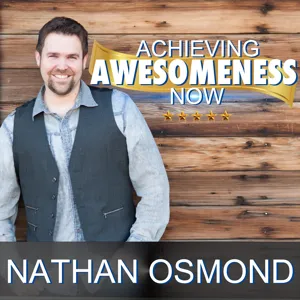Podcast Summary
Leveraging LinkedIn for Hiring and Health Improvements: LinkedIn is a crucial platform for finding potential hires, as over 70% of its users aren't on other job sites. For health, cooking tomatoes increases lycopene absorption, providing potential cancer-fighting and anti-aging benefits.
LinkedIn is a valuable resource for hiring professionals, especially those who aren't actively looking for a new job. With over 70% of LinkedIn users not visiting other leading job sites, businesses risk missing out on potential great candidates. Sandra, a professional who wasn't found on other job sites, emphasizes the importance of using LinkedIn for hiring. Additionally, for those struggling with weight loss, PlushCare offers telehealth services with doctors who can prescribe FDA-approved weight loss medications and accept most insurance plans. In the realm of health and well-being, Michael Mosley suggests cooking tomatoes as "Just One Thing" for their potential health benefits, such as reducing cancer risk and keeping skin looking younger. Cooking tomatoes increases the amount of lycopene, a special pigment, that can be absorbed, making cooked tomatoes a tasty and beneficial addition to one's diet. So, whether it's hiring, weight loss, or overall health improvement, these simple actions can lead to significant positive outcomes.
Cooked Tomatoes Offer Enhanced Health Benefits: Cooking tomatoes releases lycopene, boosting heart health, reducing risk of cancer, and aiding in muscle recovery.
Tomatoes, which are actually botanically speaking, fruits, offer numerous health benefits when consumed, and cooking them enhances these benefits. Tomatoes contain lycopene, an important ingredient that is more readily released when tomatoes are cooked. They have been linked to improved cholesterol levels, reduced risk of cancer, and specifically, prostate cancer. While raw tomatoes are delicious, cooking them can significantly boost their health benefits. For those concerned about heart health, consuming tomato juice daily could lower the risk of cardiovascular disease by reducing bad cholesterol and increasing good cholesterol levels. Additionally, athletes may benefit from tomato juice consumption as it aids in quicker muscle recovery and reduced inflammation markers in the blood. Tomatoes are a popular and versatile food that can be easily incorporated into meals in various ways, such as sautéing, roasting, or using in sauces and soups. So, aim to add a portion of cooked tomatoes to your diet at least five times a week for optimal health benefits.
Cooked Tomatoes: A Healthier Option Than Raw?: Cooking tomatoes releases lycopene and other healthful compounds, leading to heart, skin, and potentially cancer protection.
Tomatoes, particularly cooked tomatoes, are rich in lycopene, a potent antioxidant that helps your body combat free radicals. Cooking tomatoes breaks down their cell walls, making lycopene and other healthful compounds more accessible. This can lead to various health benefits, such as protection for the heart and skin. In fact, studies have shown that consuming tomato products daily can reduce sunburns and even boost collagen production for a more youthful appearance. Moreover, lycopene has been linked to a lower risk of various cancers, including prostate and breast cancer. Researchers like Professor Richard Van Bremen from Oregon State University have conducted extensive studies on the anticancer properties of lycopene, and the results are promising. So, contrary to popular belief, cooking tomatoes may be a healthier option than consuming them raw.
Increasing lycopene levels through tomatoes and olive oil: Consuming 100g of tomato sauce daily, cooked with olive oil, can provide 30mg of lycopene, potentially reducing DNA damage in the prostate and contributing to overall health and cancer prevention.
Consuming tomatoes and tomato products, particularly cooked with olive oil, can help increase lycopene levels in the body, which may offer protective benefits against oxidative stress and potential DNA damage in the prostate. The prostate, unlike many other organs, has a less efficient way to repair DNA damage, making it more susceptible to accumulation over time. Lycopene, a potent antioxidant, can help prevent this initial damage, reducing the body's repair workload. Eating 30 milligrams of lycopene daily, equivalent to about 100 grams of tomato sauce, can be achieved through various dishes like pasta, soups, and sauces. Tomatoes release more lycopene when cooked, and using a little olive oil during preparation can enhance extraction. This simple dietary change, often enjoyed in dishes like pizza, can contribute to overall health and potentially cancer prevention.
Discovering the Hidden Health Benefits and Literary Gems: Tomatoes offer antioxidant lycopene for cancer protection, heart health, and skin improvement. Unearthing overlooked literature provides new insights and perspectives. Indulging in small pleasures, even on a budget, brings joy and enhances experiences.
Incorporating tomatoes into your diet can have numerous health benefits. Tomatoes are rich in lycopene, an antioxidant that may protect against certain types of cancer. Cooking tomatoes or drinking tomato juice can also improve heart health and skin condition. Additionally, paying attention to sodium levels in tomato juice is important to maintain healthy sodium levels. In the world of literature, exploring stories and works that are often overlooked can provide valuable insights and perspectives. By asking questions about what makes these works special and why they matter, we can gain a deeper appreciation for their enduring impact. And in everyday life, treating ourselves to nice things, even when on a budget, can bring joy and enhance our experiences. Whether it's through gifting or personal purchases, the importance of delivering a smile cannot be overstated.






